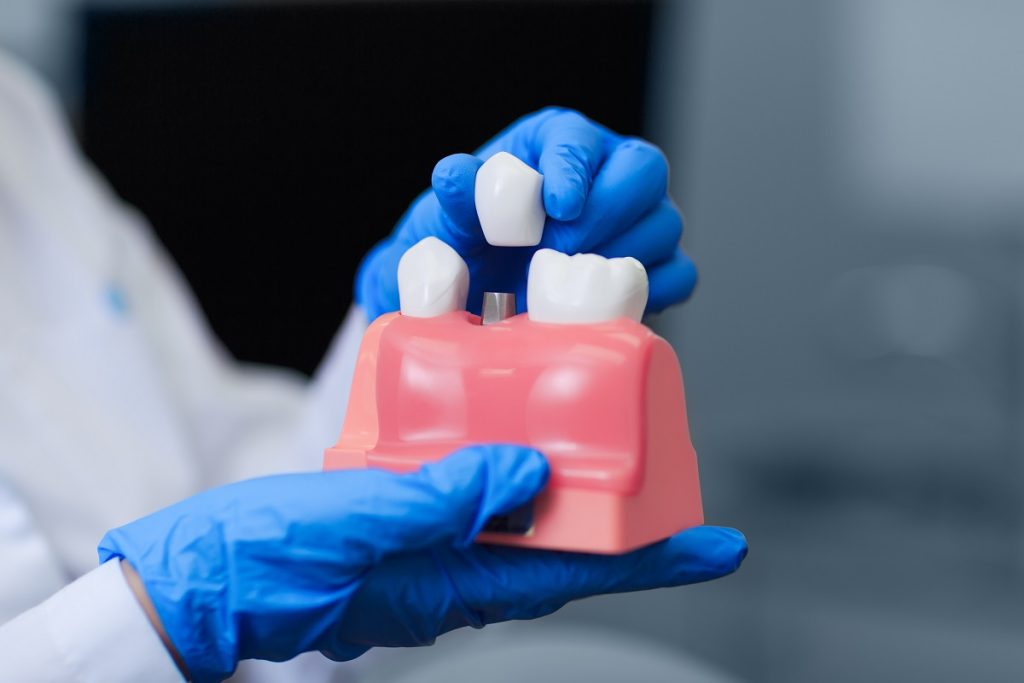Dental implants in Bromley are a popular option for replacing missing or damaged teeth. This dental procedure involves placing a titanium screw into the jawbone, which serves as a replacement root for the missing tooth. A natural-looking dental crown is then placed on top of an abutment (a post which connects the screw and visible prosthetic), creating a replacement tooth considered to be durable and long lasting.
What is the process of having implants done?

As with any dental procedure it is important to seek suitable advice before going forwards with treatment. At an initial consultation a dentist will most likely undertake a full examination of a patient’s mouth and teeth, as well as discussing relevant history, whether dental, medical or both, in order to inform a decision about whether implants are suitable for their personal needs. Once this has been determined, treatment can move forwards.
Where the missing tooth has been removed by the dentist, it is possible that the removal of the tooth and the inserting of the metal screw can be done at the same time (of course this is case dependent). After the metal screw has been inserted into the jawbone, there will be a period of time before the following step in the process takes place in order to allow for healing.
Once adequately healed, the abutments and visible prosthetics can be added to the screws. By this time osseointegration may have occurred (this is the process of the screw fusing with the surrounding jawbone) thus creating a sturdy anchor for the remaining two portions of the implant.
The visible prosthetic is generally in the form of a crown or denture (depending on how many replacement teeth one screw is supporting). These can often be adapted to create a close match to any remaining natural teeth, in shape, size and even colour.
Are there any advantages to this treatment?

One of the most recognised advantages of these implants is their natural appearance and feel. This can help improve a person’s self-confidence (due to the discreet nature of these replacement teeth, and the secure feel in a patient’s mouth) and overall dental wellbeing.
Another advantage is their durability. With proper care, dental implants can last for decades, making them a long-term solution for missing teeth. Patients can continue to maintain good dental hygiene practices with confidence.
Because the implanted replacement is securely anchored into the jawbone, it can provide stability and support for adjacent teeth. This can help to prevent shifting or movement of neighbouring teeth. In addition to this, they do not rely on adjacent natural teeth for their anchoring. This can promote the continued health of remaining teeth. Alongside this, the stability may encourage patient confidence in eating what they wish with less worry about impacting unstable teeth.
The implanted screws can also promote bone regrowth in the jaw. This may be considered a particular advantage for those who have experienced tooth loss due to injury as this can help to repair damage to the jawbone.
Implants can be used to replace single teeth, or multiple teeth making them a versatile treatment option for a range of different situations.



